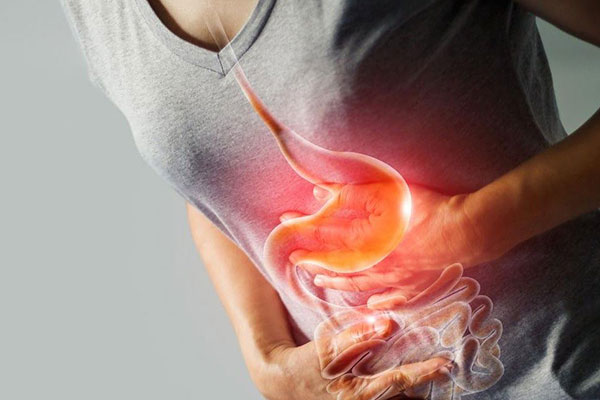Gastritis

Gastritis
Gastritis is an inflammation of the mucosal lining of the stomach. Common symptoms include stomach pain, belching, and bloating for a couple of days, nausea, appetite loss, and unintentional weight loss.
Causes
Gastritis can be caused by a group of conditions that lead to the inflammation of the stomach lining:
- H. pylori infection is the most common cause of gastritis. H. pylori can inflame the stomach lining and make the patient feel stomach pain or get nauseous. If left untreated, H. pylori bacterium may probably develop chronic gastritis, gastric or duodenal ulcer. The infection is associated with as many as 90% of duodenal ulcers and 70-75% of gastric ulcers.
- Certain pain relievers such as nonsteroidal anti-inflammatory drugs (NSAIDs) can damage the stomach lining and lead to chronic inflammation.
- Excessive alcohol consumption can leave the stomach lining more vulnerable to the acidic digestive juices normally produced which may potentially damage the stomach lining for a long period. It is sometimes also associated with more severe complications including gastrointestinal tract bleeding.
- Autoimmune gastritis (AIG) is another chronic inflammatory disease of the stomach, finally presenting with atrophy of the mucosa. This is commonly seen in people with other autoimmune disorders including Hashimoto’s disease and type 1 diabetes.
Diagnosis
When the symptoms last for more than a week and do not respond to diet adjustment, patients should seek medical advice from a doctor. Doctor will check the medical history and may request further examinations including blood test, urea breath test and gastroscopy.
Treatment
Treatment depends on the cause and severity of gastritis. Most gastritis medications focus on neutralising stomach acids.
When the gastritis is caused by H. pylori infections, patients may be treated with triple therapy which consists of an acid suppressor and two to three antibiotics.
Prevention
Making dietary and lifestyle adjustments may help prevent the disease occurring. Medical studies indicate the presence of H. pylori in food samples. Asian people are more likely to get infected than the westerners since they often share the meal as a common “family style.” Individualized dining habits or the use of public chopsticks is recommended to prevent from H. pylori infection.
To prevent or lower the risk of gastritis, doctor may suggest having a balanced diet with plenty of fruits and vegetables, avoiding drinking alcohol, reducing consumption of processed meat or foods preserved by salt, and having regular physical activities.

 3405 8288
3405 8288
